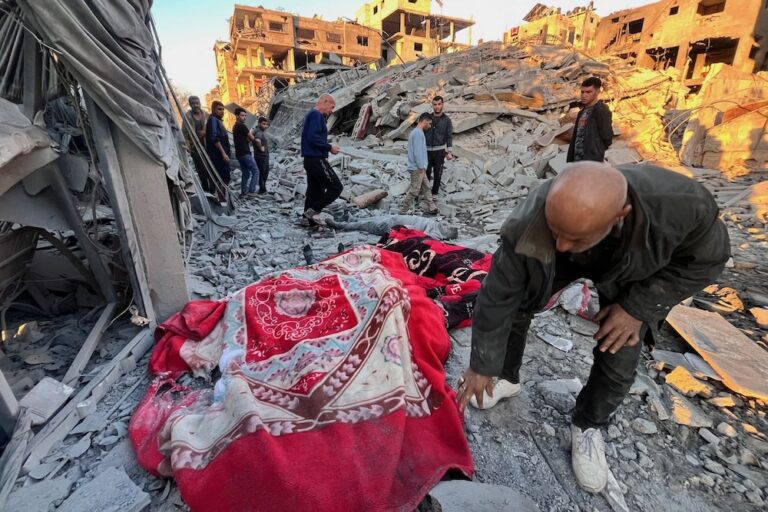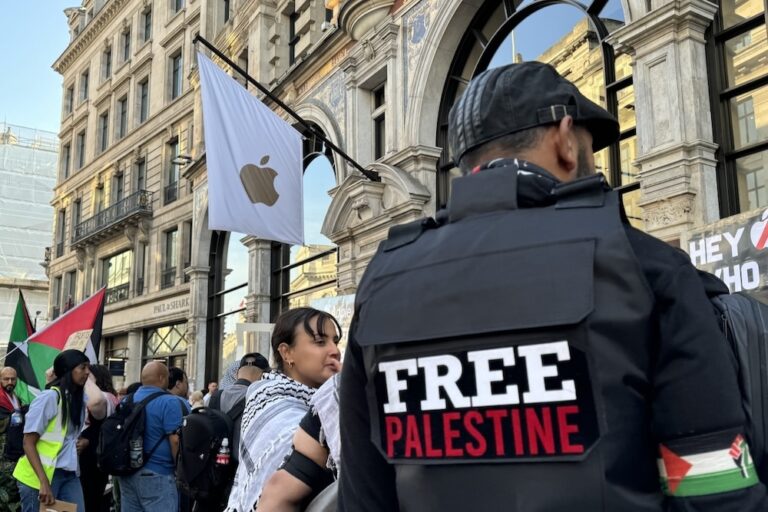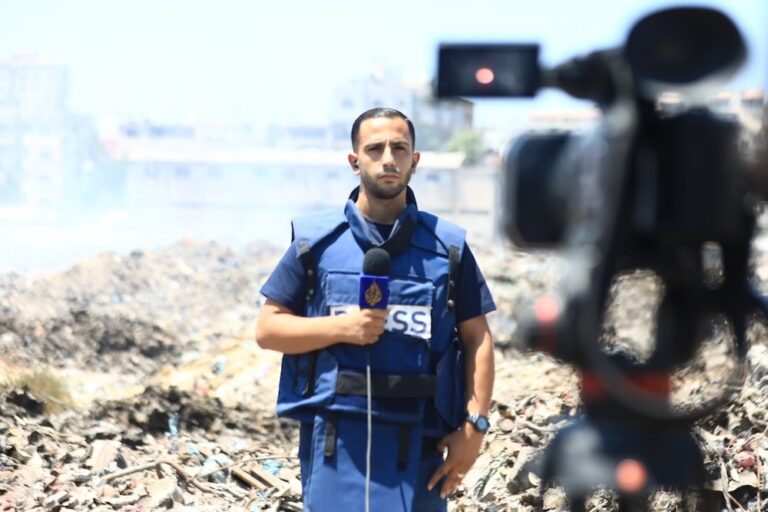(RSF/IFEX) – RSF condemns the Israeli army’s closure of three local media broadcasters in Hebron, a city in the south of the West Bank, on 30 January 2003. On 30 January, the Israeli army launched a vast military operation in Hebron, aimed at “terrorist organisations and their infrastructures, as well as the arrest of wanted […]
(RSF/IFEX) – RSF condemns the Israeli army’s closure of three local media broadcasters in Hebron, a city in the south of the West Bank, on 30 January 2003.
On 30 January, the Israeli army launched a vast military operation in Hebron, aimed at “terrorist organisations and their infrastructures, as well as the arrest of wanted Palestinians,” according to an army spokesperson. The army made no mention of these three closed broadcasters in its communiqué. Reached by telephone by RSF, an army spokesperson did not wish to comment on the reasons for the closure.
On the morning of 30 January, Israeli troops in Hebron evacuated and closed two local television stations, Nawras TV and Al-Majd TV, as well as the local radio station Al-Marah. “Nawras TV broadcasts only music and films,” said station director Khaled Masade. “We don’t know why they shut down [the station],” he added.
RSF recalls that under international humanitarian law, the media, including propaganda media, cannot be considered military targets. Media equipment and premises are civilian property that enjoy protection as such. As propaganda is an integral part of any armed conflict and as the civilian population’s morale is not a military objective, international humanitarian law bans the closure or destruction of media and the jamming of programmes. The organisation further notes that military action against the media is justified only when a media’s use for military purposes can be determined with absolute certainty, which is not, to RSF’s knowledge, the case of the three local broadcasters in Hebron.


